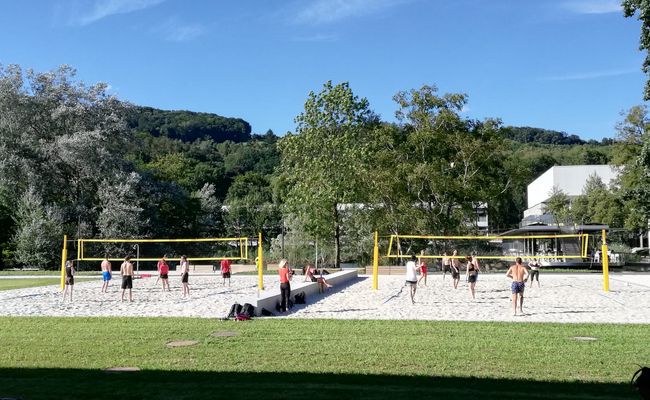Computational Mathematics is the study of mathematics, however the program strongly incorporates topics and aspects in computer science.
Are you a mathematician interested in more than just definitions, theorems, and proofs? Would you like to bring gray theory to life using computers? Or perhaps develop new theories resulting in better, more user-friendly computer programs? Then a Master’s degree in Computational Mathematics is right for you!
How do you translate questions relating to biosciences, finance, and technology into mathematical equations that a computer can solve? How does the computer thne solve these kinds of equations? Can a computer also be used to discover and prove new mathematical theorems and can you trust computer-generated evidence? These questions and more are at the heart of the Master's degree program Computational Mathematics. You will focus on modern mathematical content and explore new ways to implement mathematics using computers.
The Department of Mathematics at the JKU in Linz has been forging new paths and conducting cutting-edge research in this field for decades - be a part of it now!
Key Facts
Degree
Diplom-IngenieurIn (DIin/DI)
Duration
4 Semesters
ECTS
120 Credits
Language
English (Level B2)
Location
Linz
Program
Full-Time
As part of the Master's degree program, students must successfully complete courses in the amount of 120 ETCS credits in the following subject areas:
| COURSES | ECTS Credits |
|---|---|
| Core Subjects: There are nine core subjects worth 12 ECTS credits each, three of which must be successfully completed | 36 |
| Electives: Specialized courses | 31.5 |
| Master’s Thesis: Students attend two Master’s thesis seminars (8 ECTS credits each), and submit a Master’s thesis worth 28 ECTS credits. | 36 |
| Autonomous Coursework: Additional, arbitrary courses, can be selected from other areas. | 10.5 |
| Final Examination | 4.5 |
| Total ECTS credits | 120 |
We offer the following core subject areas:
You not only learn how to apply existing mathematical software, you will also learn more about the required procedural and development steps behind these kinds of systems.
Did you know ...?
JKU researchers apply their own software to simplify mathematical expressions. These expressions occur, for example, in particle physics, and our simplifications help to improve approximations related to certain fundamental constants found in nature.
Graduates in Computational Mathematics are highly sought after in many areas ranging from science to software development, statistics, data analysis, or at insurance companies. This degree will open countless doors in both the public or private sector at:
On average, graduates in this field are hired around 2 months after graduation. After three years of professional experience, an average monthly gross salary can be € 3,701.

In order to be admitted to the Master's degree program, you must fulfill the following requirements.
Still have questions?
Then contact us!
Department
Admissions Office
Location
Computational Mathematics is the study of mathematics, however the program strongly incorporates topics and aspects in computer science.
Click here, opens an external URL in a new window for a guide on taking your first steps to enroll, ranging from the process of registering online to enroll to paying tuition fees and student union fees.
Do you need help registering or do you have questions about the program? Contact the JKU's Office of Student Information and Academic Advising (SIBS)!
After successfully completing the Master's degree program, you can opt to pursue a doctorate degree:
These academic degree programs may also be of interest:
